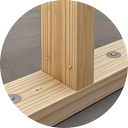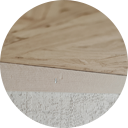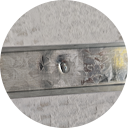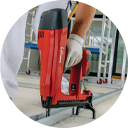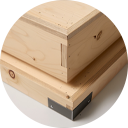What Are the Types of Screws You Must Know for Construction Projects
In every building site, from a small family home to a big office tower, the little things often make the biggest difference. Screws and nails might look simple, yet they decide if a wall stays strong or shakes loose after only a short time. Screws, in particular, deserve extra notice. They bring both power and accuracy, and they fit many different needs. Each type of screw is made with a certain job in mind. When you pick the right one, the work goes smoother, cracks are fewer, and the whole structure lasts longer. Choosing poorly, on the other hand, costs you extra hours and extra money. When you buy from abroad, you want more than products. You need a maker that knows global markets and can support you in real projects. Qinjia has grown into one of those names. The company is based in Hebei, China, and has years of steady work in nails, screws, and fasteners. They send goods to North America, the Middle East, Southeast Asia, and more. Their OEM and ODM services let you adjust details such as size, shape, or package style. In the case center you can find jobs they finished across different countries. If you look for a steady partner who gives both strong goods and useful advice, this factory is worth your trust.
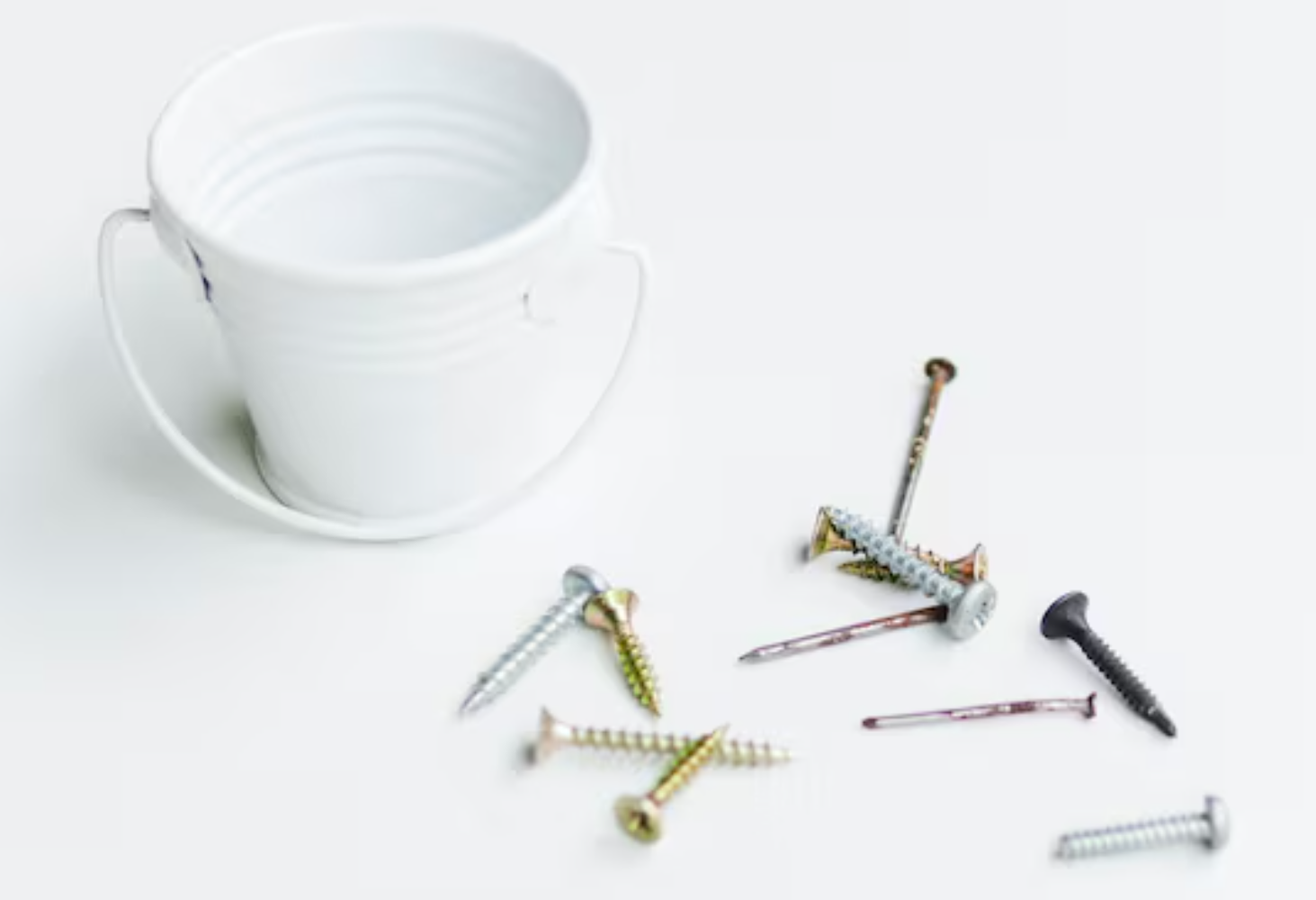
Why Are Screws Essential in Modern Construction?
Screws are not just small steel parts. They are the hidden parts that keep frames and panels from moving. A nail can slip out with shaking or over time. A screw cuts threads into the surface, which makes the grip deeper. This small detail gives more safety, especially in walls, ceilings, or furniture that face daily use.
Strong Grip in Wood and Steel Applications
When you deal with wood frames, screws go in tight and resist loosening. In thin steel work, screws still hold because the threads dig in firmly. The grip lasts even if the place has vibration or changes in weather. That is why many builders reach for screws first.
Reliable Fastening for Drywall and Partitions
In drywall jobs, screws show their value. A drywall screw has sharp threads and a bugle head. It drives fast into studs and sinks flat, leaving a smooth wall ready for finishing. Nails would not do the same because they tear the surface paper and leave bumps.
Cost Effective and Easy to Install
Using screws can save you money. They lower the chance of rework because they rarely pop out. With a screw gun, the work is quick and simple, even on a wide ceiling or a long wall.
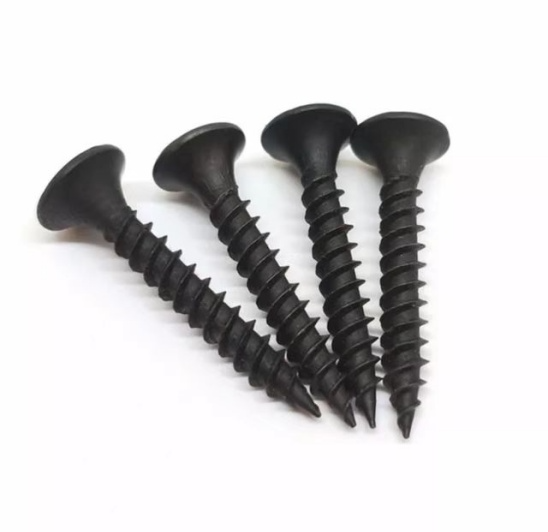
What Are the Common Types of Screws Used in Construction?
On job sites, you cannot use one screw for everything. Each type is designed with a focus on material and purpose. Knowing them avoids mistakes.
Wood Screws for Carpentry and Framing
Wood screws are basic but very important. They are cut with deep threads that fit both softwood and hardwood. You see them in frames, flooring, doors, and furniture. They help prevent splitting and give a lasting hold.
Self Tapping Screws for Metal Sheets
When thin metal sheets need to be fixed, self tapping screws do the work. Their sharp point cuts its own path. You often see them in roofing sheets, ducts, or light steel works.
Machine Screws for Industrial Assembly
Machine screws are more exact. They fit with pre-tapped holes or nuts, so they are common in tools, machines, and parts that need precision.
How Do Drywall Screws Improve Interior Projects?
Interior jobs need screws that work cleanly and strongly. Drywall screws fill this gap. Their design answers common problems like cracks or surface bumps.
Sharp Threads for Smooth Driving into Studs
Drywall screws cut into wood studs quickly. In steel studs, the fine thread goes in without stripping. Workers notice they go in without much push, which saves time on large projects.
Bugle Head Design for a Flush Finish
The bugle head is a small but smart design. It sinks just under the surface and avoids breaking the paper layer on drywall. That means the surface stays smooth and ready for paint or plaster.
Coarse and Fine Thread Options for Wood and Steel
Coarse threads suit wood studs, while fine threads match light steel studs. Picking the right thread type matters a lot. It balances speed, strength, and safety.
Why Should You Consider Chipboard Screws for Furniture and Panels?
Furniture jobs are not like wall framing. They often use particle board or chipboard. This material can split or fail if you choose the wrong fastener. That is why chipboard screws exist.
Deep Thread Design for Particle Board
A chipboard screw has long deep threads. These threads bite into soft particle board fibers and stay there.
Consistent Holding Power without Splitting
The design spreads pressure evenly. That reduces splitting, which is a common issue in low-density boards. The screw holds, even when the furniture gets moved around.
Suitable for Cabinets and Flat Pack Assembly
Cabinets, shelves, and flat pack furniture all depend on chipboard screws. They are simple to use and give enough hold for daily use in homes or offices.
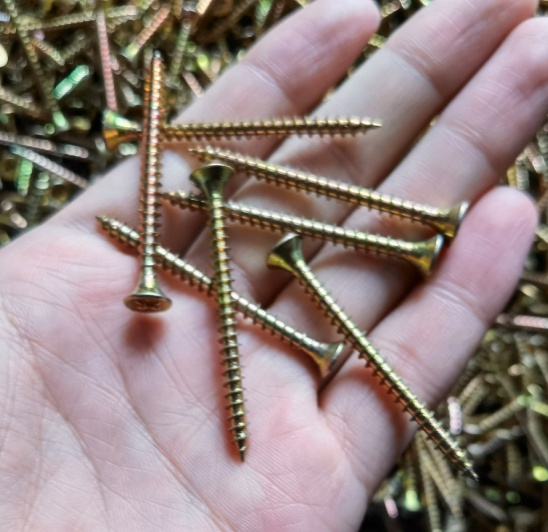
What Makes Qinjia a Reliable Supplier of Screws?
Buying screws is easy. Finding a maker who provides steady quality and support is harder. This is where a serious supplier stands out.
OEM and ODM Services for Custom Projects
If you want screws of a special length, head type, or package, the service team can design it. Distributors can build their own style without setting up a factory.
Strict Quality Control and International Testing
Hardness, torque, and salt spray tests are normal. Random checks and final inspections are routine steps. Third-party checks can be arranged if needed.
Proven Cases in Global Construction Markets
Completed works in the Middle East, Australia, or North America give proof. These projects show that the screws meet both local and export demands.
How Can Screws Reduce Construction Failures?
Failures on a site often come from weak fasteners. A wrong screw may loosen, crack the board, or fail under load. Correct screws stop that from happening.
Preventing Loosening and Pull Outs
Threads grip the base tight. Even when the wall shakes from doors closing or machines running, screws stay in place.
Reducing Cracks in Wood and Drywall
Sharp points and controlled hardness cut in without forcing the wood to split. In drywall, this means fewer broken edges and smoother walls.
Enhancing Durability of Structures
When frames and boards are fastened securely, the whole structure lasts longer. This is why screws are chosen in key points where strength is vital.
FAQ
Q1: Are drywall screws the same as wood screws?
A: No. Drywall screws are thinner and longer, designed mainly for gypsum boards.
Q2: Can chipboard screws be used in solid wood?
A: They are not best for solid wood. Normal wood screws work better there.
Q3: Do drywall screws come with different surface finishes?
A: Yes. Black phosphated and zinc plated are common, which help fight rust.


